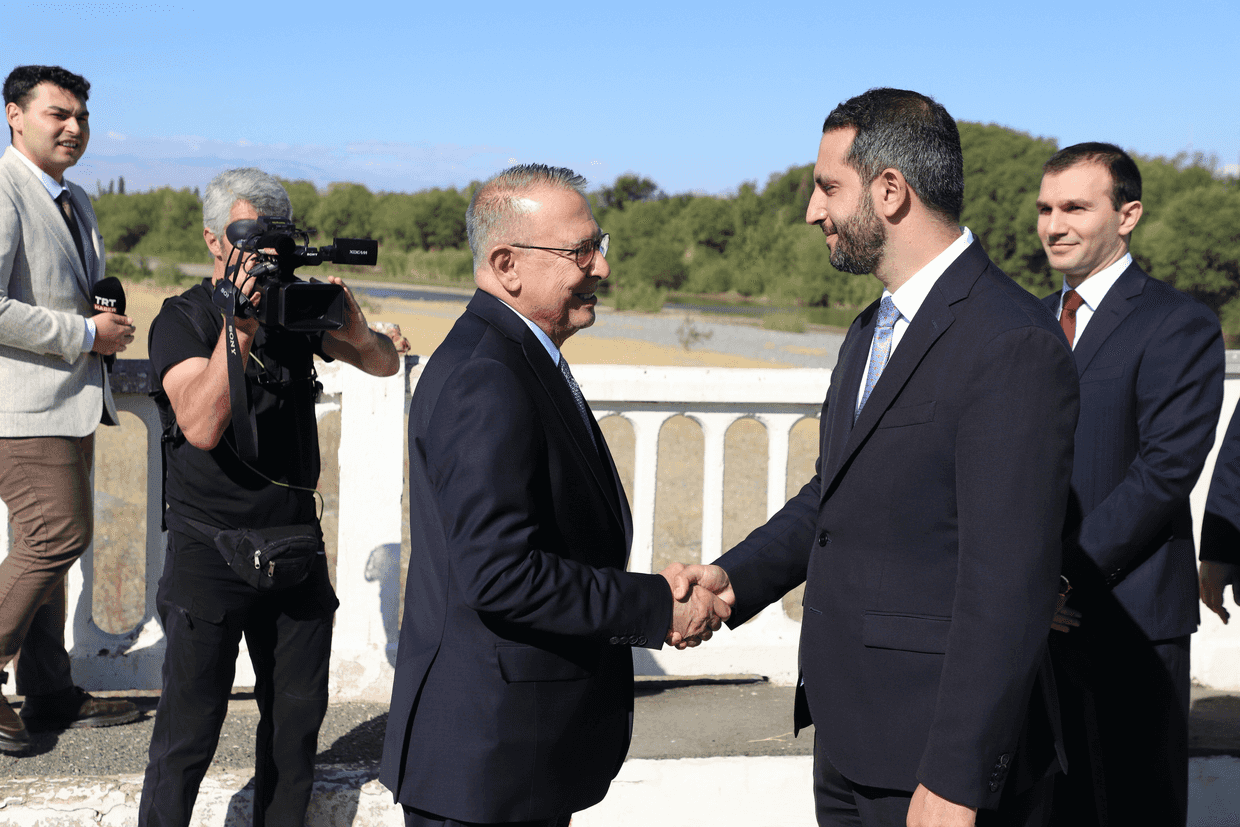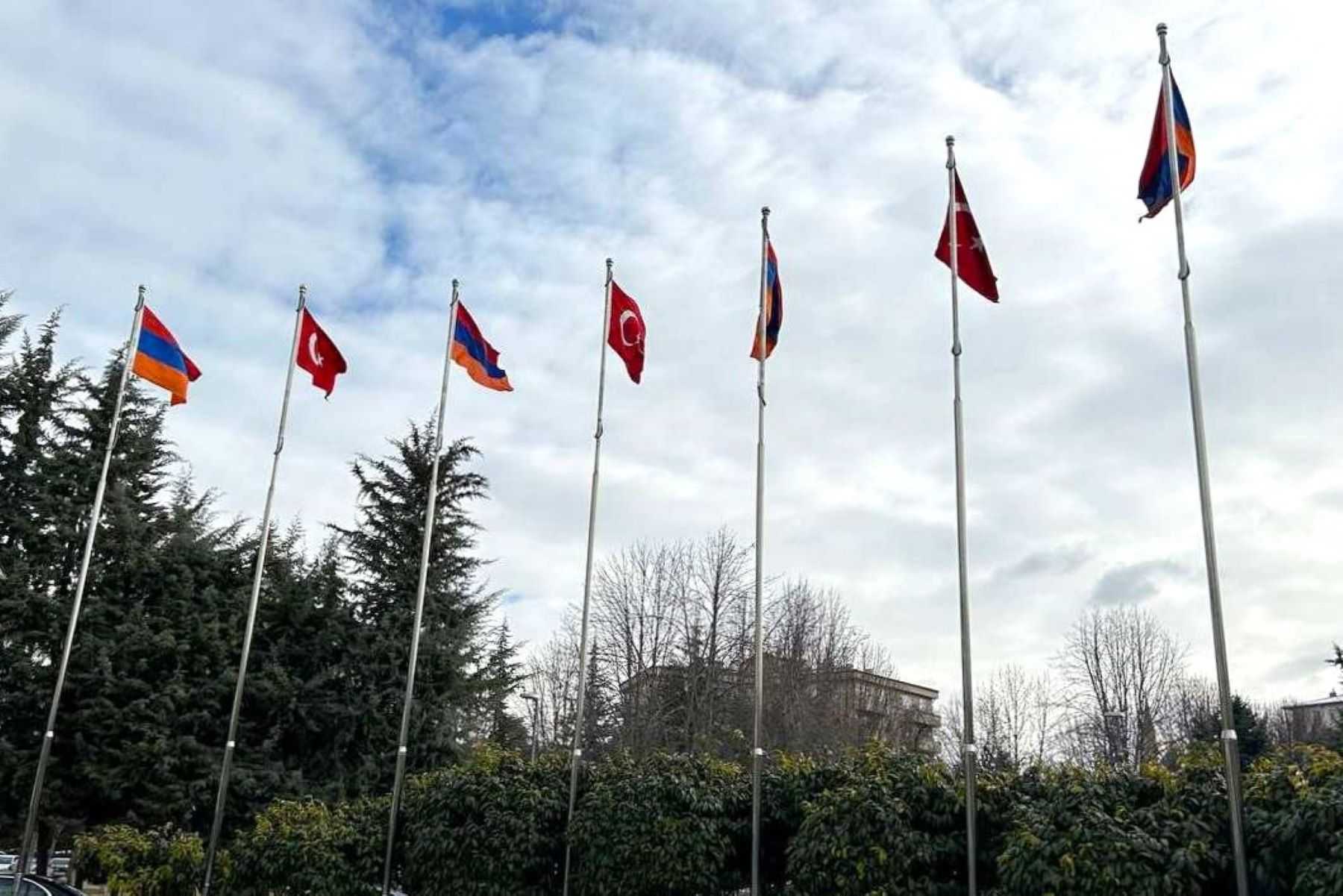Armenia says normalisation with Turkey would help, not harm, peace efforts with Azerbaijan

Armenian Foreign Minister Ararat Mirzoyan has pushed back against comments by his Turkish counterpart Hakan Fidan that opening the Armenia–Turkey border now would undermine Yerevan’s motivation to sign a peace deal with Azerbaijan.
In an interview with Armenpress, Mirzoyan said the two tracks — normalisation with Turkey and peace with Azerbaijan — should not be treated as conditional with one another. Instead, he argued, progress on the Turkish front could strengthen stability in the region.
‘The establishment of diplomatic relations with Turkey and the opening of the border are indeed important for Armenia. So is the institutionalisation of lasting peace with Azerbaijan,’ Mirzoyan said. ‘However, neither of these processes is dependent on the other. If anything, full normalisation with Turkey may positively, rather than negatively, influence the Armenia–Azerbaijan settlement.’
Mirzoyan also reaffirmed Yerevan’s commitment to unblocking regional transport routes on the basis of sovereignty, territorial integrity, and reciprocity — principles agreed upon at the 8 August Washington summit. Under those terms, the emerging Trump Route is expected to connect Azerbaijan with Nakhchivan via Armenia, while providing Armenia access to wider regional and international markets.
Mirzoyan’s comments followed a lengthy exchange in the Turkish Parliament on Tuesday, where Fidan reiterated that Turkey would not open its land border with Armenia until Baku and Yerevan sign a final peace accord and resolve what Ankara calls ‘outstanding issues’, including debates around Armenia’s Constitution and the ‘Zangezur corridor’.
The term ‘Zangezur corridor’ is used by Azerbaijani and Turkish officials, with Armenia interpreting the term as a territorial claim and dismissing its use. Responding to Fidan’s comments, Armenian Prime Minister Nikol Pashinyan once again stated that Armenia recognises only the concepts of the ‘Crossroads of Peace’ and the Trump Route project outlined in the Washington Declaration, insisting that any other terminology, including references to a ‘Zangezur corridor’, was not applicable to Armenia.
Turkey, he insisted, would not take steps that might ‘remove Armenia’s incentive’ to meet Azerbaijan’s expectations.
‘When these issues and Armenia’s constitutional problem are resolved, and when the peace treaty between Armenia and Azerbaijan is ultimately signed, we will open the border,’ Fidan told MPs during budget discussions. ‘Opening the border too soon would deprive Armenia of its strongest motivation to conclude peace.’
He added that Ankara had already completed ‘technical and preparatory work’ on its side and was ‘practically ready’ to open the crossing once the Armenian–Azerbaijani dispute is settled.
Fidan faced repeated questions from opposition MPs, particularly over Ankara’s approach to the ‘Zangezur corridor’ and existing rail links that could facilitate transport between Turkey, Armenia, and Azerbaijan.
Left-wing MP Hakkı Saruhan Oluç asked why Turkey was not willing to begin reactivating railways that already cross the three countries, noting Armenia’s proposal to open the Margara–Kornidzor line as part of the broader Trump Route network.
‘Opening this rail line would increase trust in peace and ease Turkish business access to both Armenia and Azerbaijan,’ Oluç said.
Fidan also publicly acknowledged that Armenia and Azerbaijan have not reached any final agreement on the nature, operation, or legal status of the so-called ‘Zangezur corridor’, despite years of rhetoric. Turkey, he said, merely ‘facilitates’ talks but is not the decision-maker.
‘The territory is in Armenia, the claimant is Azerbaijan — we act as a mediator because the road is also important for us,’ he said.
Mirzoyan, for his part, reiterated that Armenia’s position remains grounded in sovereignty and jurisdiction, rejecting any extraterritorial corridor demands.








